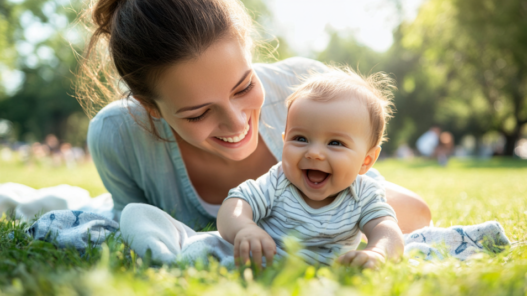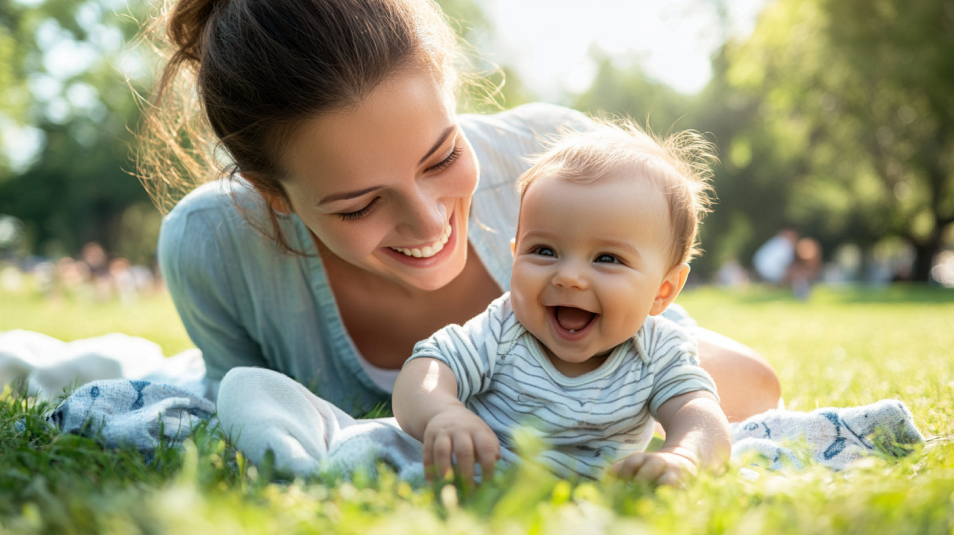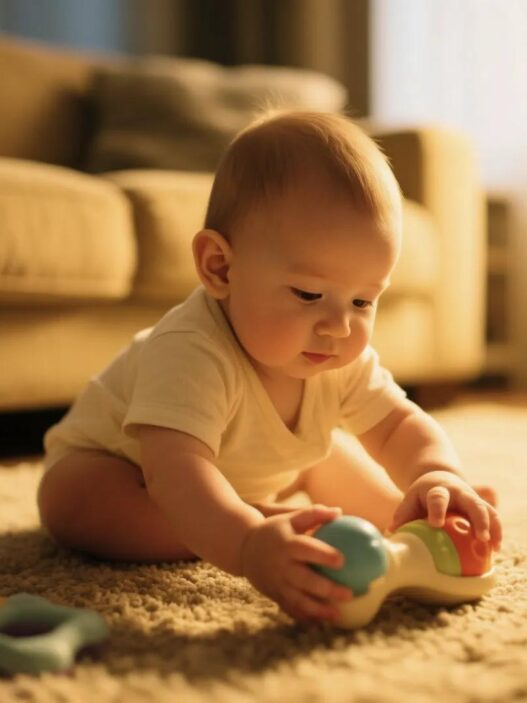Does your baby greet everyone with smiles and giggles, effortlessly charming every stranger they meet? Or perhaps your little one hides away, wishing for immediate teleportation home whenever unfamiliar faces appear.
Don’t fret, thinking social skills are just “born that way.” In reality, these essential skills start developing even before your baby’s first birthday!
Wait, Babies Need Social Skills Too?
Absolutely! Even though infants under one year old aren’t scrolling social media or chatting casually, they’re constantly interacting through eye contact, facial expressions, and cute little gestures.
This period is crucial for laying the foundation of future confidence, sharing abilities, and self-expression. Research also shows that babies who have positive early social interactions handle emotions better and adjust quickly to new environments as they grow.
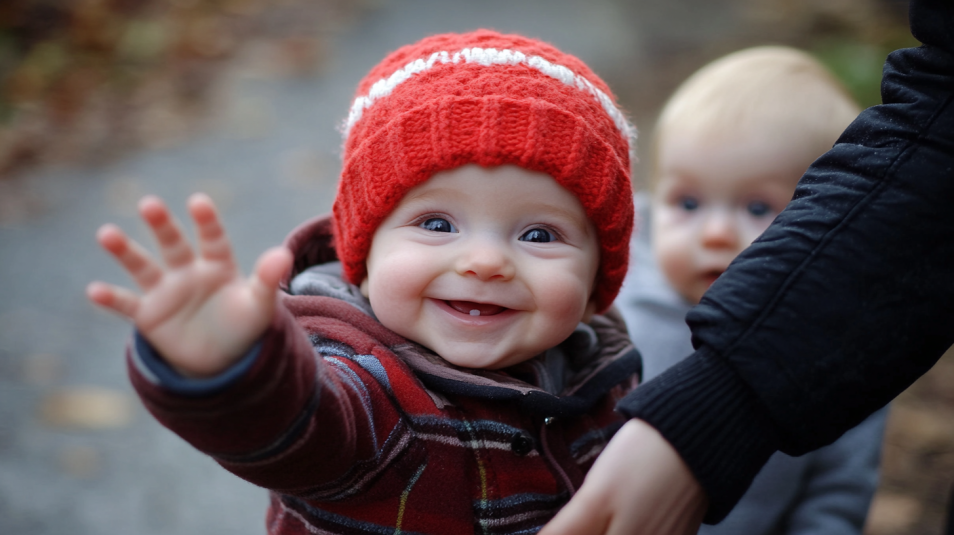
Never underestimate the power of daily smiles, cuddles, and playful interactions—these tiny moments are the building blocks of great social skills.
5 Secret Techniques to Boost Your Baby’s Social Skills
1. Mastering Eye Contact: Your Baby’s First Conversation
From birth, babies communicate by watching your face, eyes, and mouth closely, trying to decode your messages. By responding warmly and smiling back during routine activities like diaper changes, bath time, or play, you teach your baby the essentials of interaction.
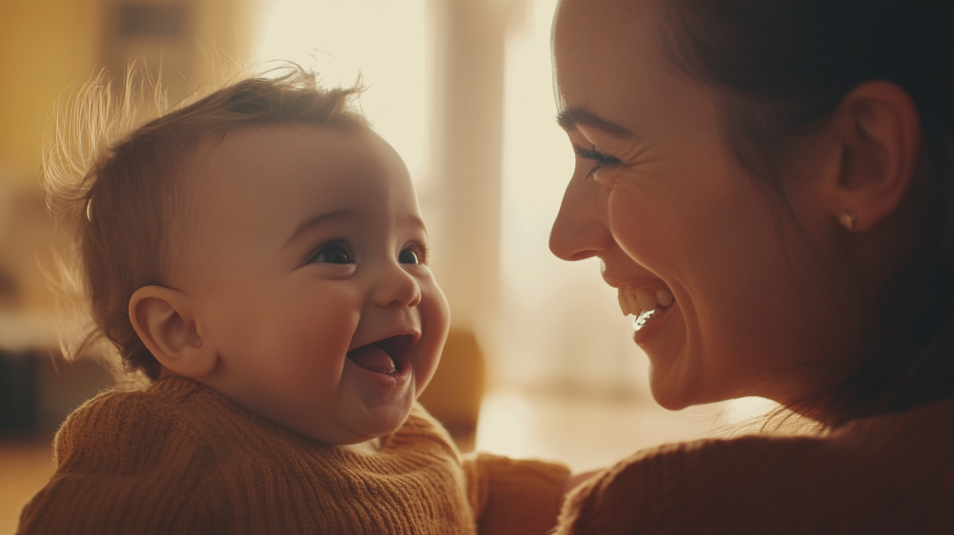
The sooner you establish strong eye contact habits, the more interactive and sociable your baby will become!
2. Play the Imitation Game to Decode Emotions
Babies learn social cues primarily through imitation. Simply explaining emotions like happiness, sadness, or anger won’t cut it. Instead, try a fun imitation game!
Make exaggerated expressions while announcing, “Wow, I’m so happy!” Your baby might pause, stare, and then joyfully mimic your face. Repeat with various emotions to help your baby understand and express their own feelings. This playful practice is foundational for future friendships and conflict resolution.
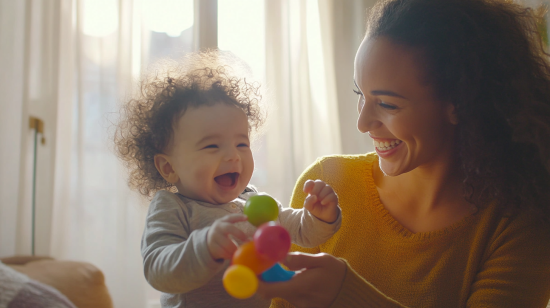
3. Managing Stranger Anxiety: Respect Their Pace
Around 7-10 months, many babies experience stranger anxiety, often crying and clinging to parents. This phase actually signals healthy social development, as your baby begins to distinguish trusted people from strangers.
Rather than forcing interactions, prepare your baby gently by explaining what’s coming: “We’re meeting Auntie soon; she’ll say hello!” Allow your baby to quietly observe from your arms until they feel safe enough to engage.
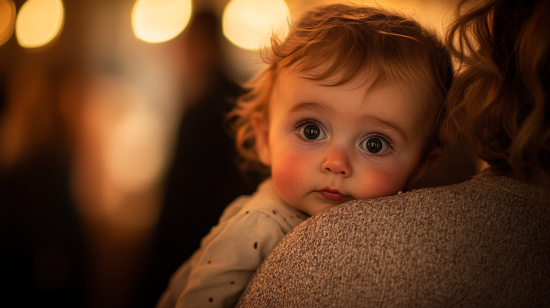
Respecting your baby’s comfort level builds genuine social confidence.
4. Peek-a-Boo: The Ultimate Trust-Building Game
Peek-a-boo isn’t just amusing—it’s crucial for developing your baby’s sense of trust and reliability in relationships. When you disappear and reappear, your baby learns that people come back, laying a foundation for stable interpersonal expectations.
Switch roles sometimes, letting your baby “hide” so they experience control and accomplishment. This builds their confidence to engage actively in social interactions as they grow.

5. Provide Language Templates: Empower Early Expression
Babies under one year may not speak clearly, but they’re bursting with the desire to communicate! When your baby gestures or babbles excitedly, interpret and verbalize clearly: “You want the ball? Say ‘ball,’ please!”
Gradually, they’ll mimic your words, stepping into verbal expression. Clear communication is the heart of social interaction, with language serving as a critical bridge.
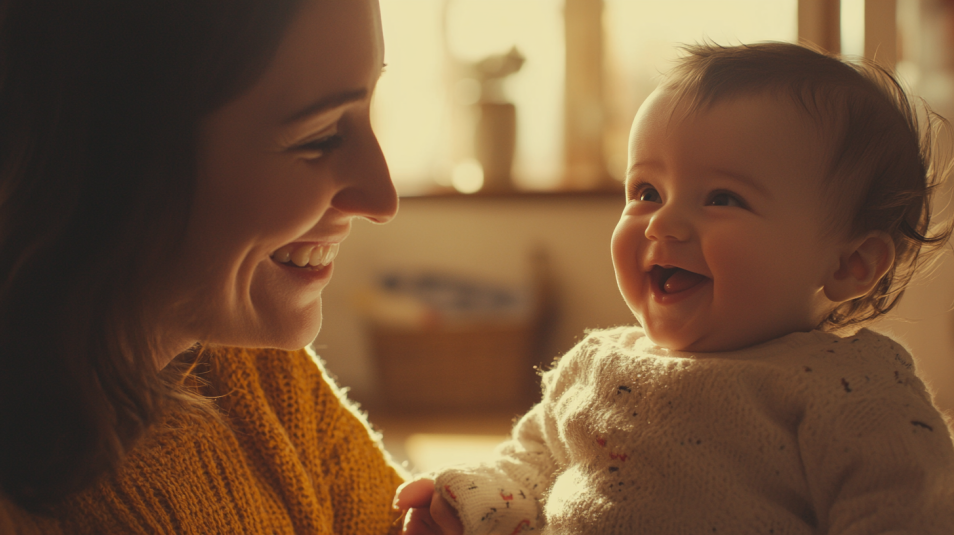
Additional Parenting Tips for Raising Socially Confident Babies
- Expose your baby regularly to different environments and people. Even simple strolls in your neighborhood expose them to various social cues and interactions.
- Avoid labeling your child as shy. Refrain from speaking for them, such as stating, “He’s too shy to say hello,” as it reinforces that behavior.
- Be a good social role model. Babies learn best by watching, so greet neighbors and friends warmly, knowing your baby observes and learns.
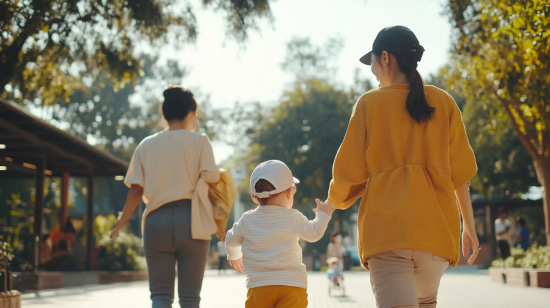
Final Thoughts: Social Skills Start with Feeling Understood
True social skills aren’t about performing—they stem from feeling understood. Babies naturally crave recognition and understanding. Your attentive responses, verbal encouragement, and respect for their pace are the keys that unlock their social world.
You provide support, and your baby practices diligently. That’s how your tiny human blossoms into a confident social star!







